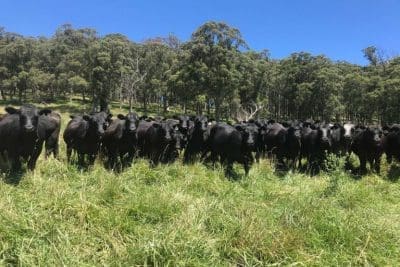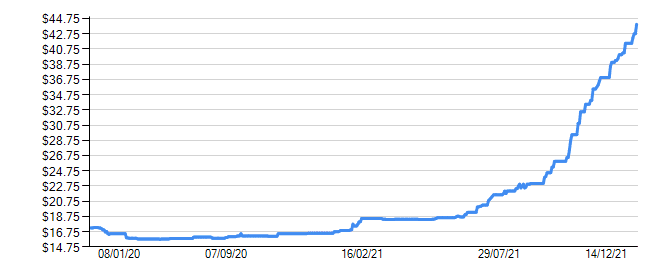
CARBON credits across the globe have been fetching record prices in the past year as companies and governments commit to emissions reduction targets.
The situation has prompted a push for more carbon projects on cattle stations, with obtaining valuable credits an added incentive to improving biodiversity – and often production. But with the market in its infancy, the way credits are traded and regulated is still a developing conversation.
Some see the carbon market as a major opportunity for a second income, with deals like Wilmot Cattle Company’s $500,000 sale of credits to Microsoft earlier this year raising plenty of eyebrows.
Other industry experts are more conservative about the carbon market, warning producers they may be better off holding onto credits to keep market access for their agricultural products in the future.
For those commercial decisions to take place, the way carbon credits are regulated has been an issue facing many governments – including Australia.
Australia’s domestic trade of credits
Australia’s most prominent carbon trading scheme comes under the Federal Government’s Clean Energy Regulator, which awards Australian Carbon Credit Units (ACCUs) for carbon abatement projects.
ACCUs are known to have some of the most integrity in the world but can only be traded within Australia – despite the value doubling in the past six months.

Click to enlarge. Australian Carbon Credit Units have doubled in value over the past six months. Source: Jarden
The Federal Government has been buying most of the credits in recent years, until recently when corporations starting to purchase them to offset emissions and comply with targets.
Agriculture Minister David Littleproud was recently asked on Beef Central’s Weekly Grill podcast if the government has plans to allow foreign companies to buy ACCUs. He said there was new legislation in the works, but he had concerns.
“We don’t intend to let a whole mechanism where you’ve got day traders sitting at desks in Sydney trading this commodity and it gets out of hand and it becomes a tax,” Mr Littleproud said.

“We have foreign raiders coming in and utilizing carbon credits from Australia and then taking them home. This is where we need to make sure that we get the process right and we also put the heat on our own corporates.
“A fair few of them buy a few credits here in Australia and then buy junk credits out of out of South America or Southeast Asia, where they really have no validity whatsoever.”
Mr Littleproud said legislating ACCUs was in the energy minister Angus Taylor’s remit, who was contacted for comment.
Rules need to be right to realise the opportunity
While the government is still looking into the domestic carbon scheme, many other schemes across the globe already allow for international trading – including the US-based scheme used by Wilmot in January.
John Connor from the Carbon Market Institute said with a large land mass in Australia, there was potential for carbon credits to become a major export market.
Mr Connor said rules needed to be in place to make sure companies across the globe were not double-counting credits – a practice where companies sell credits but still claim them against their own business.
“You can’t sell a cow twice, you can’t sell your barley twice and you can’t sell you carbon credits twice,” he said.
“There is opportunities for the agriculture sector to capitalise on being carbon neutral, but it should also not ignore the potential of the carbon market.”
Mr Connor said a landmark agreement was made at the COP26 summit earlier this year to stop double-counting.
“COP26 was very important in clearing some very important barriers for carbon markets to grow with international co-operation,” Mr Connor said.
“One of the main issues coming up with international deals is integrity, and Australia has a lot to offer in that department. We think the ACCU is a good product globally and corporates and other will move to that integrity.”

David Littleproud correctly identifies the problem with “foreign raiders” coming in and utilising Australian credits and then taking them home”. John Connor identifies the ” integrity” of Australian credits as being attractive to corporates and others.
Yet again we have the ingredients for conflict between national/sovereign security and profit.
While acknowledging the Covid related business pain suffered by many businesses, if the ‘corporates and others’ John Connor refers to were to include any high emitting Asian nation (or any commercial arm thereof), then David Littleproud and not John Connor needs to be listened to. Australian entities must be given first refusal on Australian units, and Australia friendly nations second, with any third opportunities approved by the Minister. We have to start learning how to survive isolationism.
The Clean Energy Regulator’s last auction in October 2021 resulted in an average price of AU$16.94 per tonne of abatement. This was paid from Government funds. The dramatic increase in price came from the ‘Spot Market’ for carbon, which on Tuesday this week was trading at AU$45.50 per tonne. The graph suggests that the increase in price was due to the Government paying more (AU$42) per tonne, which is not the case.
So would you say that this graph is not an accurate reflection of the current prices of ACCUs? If the spot market is 3x higher than what government is paying for, what is the cause of this?